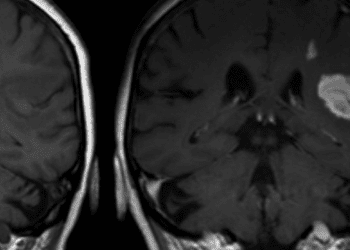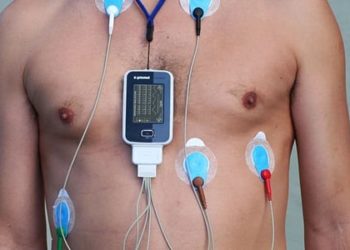Rosuvastatin associated with reduction of cardiovascular disease in all ethnicities: The HOPE-3 study
1. Intermediate-risk cardiovascular patients on rosuvastatin demonstrated significantly lower risk of cardiovascular events compared to patients on placebo.
2. Intermediate-risk cardiovascular patients on rosuvastatin have higher rate of muscular symptoms but lower levels of DVTs or PEs compared to placebo.
Evidence Rating Level: 1 (Excellent)
Study Rundown: Recent literature has demonstrated a continuous positive relationship between coronary disease and blood cholesterol levels. Additionally, clinical trials have shown that lowering LDL cholesterol concentrations with statins can reduce the risk of cardiovascular disease. However, previous trials that evaluated the effects of statins on reducing cardiovascular disease had typically studied racially homogenous populations that had a baseline cardiovascular disease. The HOPE-3 Trial expanded current literature by investigating whether statins had clinical benefit for an ethnically diverse and intermediate-risk patient population that did not have a baseline cardiovascular disease. The researchers found that patients treated with rosuvastatin (10mg/day), had significantly less cardiovascular events compared to placebo. Furthermore, this group had a lower risk of stroke, MI and hospitalization due to cardiovascular causes. Additionally, the researchers found that while the rosuvastatin group had significantly higher rates of muscle pain and weakness, the rate of discontinuation was actually lower for rosuvastatin compared to placebo. The HOPE-3 researchers proposed that the positive clinical effects of rosuvastatin were likely underestimated due to the trial’s relatively short mean duration and the time-to-first even analysis methodology. Overall, data from this study suggests that there is significant clinical benefit to using statins in intermediate-risk persons with low associated side effects.
Click to read the study in NEJM
Relevant Reading: Efficacy and safety of more intensive lowering of LDL cholesterol: a meta-analysis of data from 170,000 participants in 2 randomised trials
In-Depth [randomized controlled trial]: This was a multicenter, long-term, international, double-blind, randomized, placebo-controlled trial which took place at 228 centers in 21 countries. For this study in particular the researchers had randomized 12,705 participants to either a rosuvastatin (n=6361) treatment group or a placebo group (n=6344). Men were 55 years of age and older and women who were 65 years of age and older who had at least one of the following risk factors: elevated waist-to-hip ratio, history of low level high-density lipoprotein cholesterol, current or recent tobacco use, dysglycemia, family history of premature coronary disease or mild renal dysfunction. Of note, women between 60-64 years of age were included if they have at least two of the aforementioned risk factors. Patients with cardiovascular diseases were excluded and the study took place between April 2007 through November 2010 with a median follow-up of 5.6 years. With regards to adherence, placebo was discontinued at a significantly higher rate compared to rosuvastatin (23.7% vs. 26.2%; p=0.001). Overall, mean LDL cholesterol was 26.5% lower in the rosuvastatin group compared to placebo. End-trial LDL cholesterol levels were significantly lower in the rosuvastatin group compared to the placebo group (difference of 34.6mg/dL or 26.5%; p<0.001) as were mean triglyceride levels (0.24mmol/L difference; p<0.001) and CRP levels (log-transformed mean difference=0.19mg/L; p<0.001).
Composite of death due to cardiovascular etiology, nonfatal MI or stroke occurred in 3.7% of the rosuvastatin participants compared to 4.8% of the placebo participants (HR=0.76; 95% [CI]=0.64-0.91; p=0.002). The NNT with rosuvastatin to prevent this composite was 91. The cumulative incidence of nonfatal strokes was significantly lower in the rosuvastatin participants (HR=0.7; 95%[CI]=0.52-0.95; p=0.02). Furthermore, nonfatal MIs occurred significantly less in the treatment group compared to the placebo participants (HR=0.65;95%[CI]=0.44-0.94; p=0.02). Rosuvastatin participants had significantly fewer hospitalizations due to cardiovascular causes compared to placebo (4.4% vs. 5.8%; HR=0.75; 95%[CI]=0.64-0.88; p<0.001). With regards to adverse effects, the rosuvastatin group had significantly more muscle symptoms (5.8% of participants vs. 4.7% in placebo group; p=0.005) and fewer DVTs/PEs compared to the placebo group ((14 vs. 31; HR=0.45;95%CI=0.24-0.84; p=0.01). Interestingly, there was no significant difference in the number of participants in whom the assigned treatment was permanently discontinued because of muscle symptoms.
Image: PD
©2016 2 Minute Medicine, Inc. All rights reserved. No works may be reproduced without expressed written consent from 2 Minute Medicine, Inc. Inquire about licensing here. No article should be construed as medical advice and is not intended as such by the authors or by 2 Minute Medicine, Inc.







